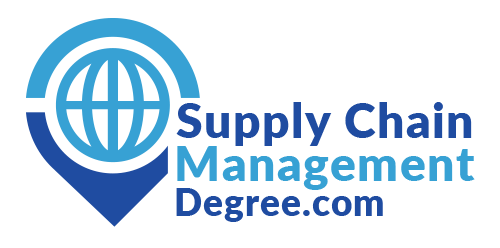Unveiling the Future: The Role of Artificial Intelligence in Supply Chain Education
Navigating the Future with AI and Supply Chain Management Logistics
In an era where technology is rapidly evolving, the supply chain management landscape is undergoing a revolutionary transformation. As industries embrace digitalization, one of the most significant catalysts for change is Artificial Intelligence (AI).
Supply chain professionals equipped with AI knowledge are becoming indispensable in navigating the complexities of modern logistics. This post delves into the pivotal role of AI in supply chain education, highlighting its impact on curriculum development and the skill sets demanded by the industry.
The Growing Significance of AI in Supply Chain Management
Artificial Intelligence has emerged as a game-changer in supply chain management, offering advanced capabilities such as predictive analytics, automation, and optimization. In an industry driven by data and efficiency, AI is revolutionizing traditional practices, streamlining processes, and enhancing decision-making.
- Predictive Analytics for Demand Forecasting: AI algorithms are adept at analyzing vast amounts of historical data to predict future trends and demand patterns. Supply chain professionals with AI knowledge can leverage these tools to optimize inventory management, reduce costs, and ensure products are available when and where needed.
- Automation for Enhanced Efficiency: Automation, powered by AI, is pivotal in eliminating manual, time-consuming tasks. From warehouse operations to order fulfillment, AI-driven automation ensures accuracy, speed, and reliability, allowing supply chain professionals to focus on strategic decision-making rather than routine operational tasks.
- Optimization of Supply Chain Networks: AI algorithms can analyze complex supply chain networks, identify inefficiencies, and propose optimal solutions. Supply chain management programs integrating AI education empower professionals to design and manage resilient supply chains that can adapt to dynamic market conditions.
AI Integration in Supply Chain Education
Recognizing the transformative potential of AI, educational institutions offering supply chain management programs are adapting their curricula to meet industry demands. The focus is on equipping students with the skills required to harness AI technologies effectively.
- Incorporating AI in Course Content: Supply chain management programs are integrating courses specifically dedicated to AI applications in logistics. Students learn to use AI tools for demand forecasting, inventory optimization, and risk management, gaining practical insights into real-world scenarios.
- Hands-on AI Projects: Practical experience is crucial in mastering AI skills. Supply chain education programs incorporate hands-on projects that involve using AI tools and platforms. This practical exposure ensures that students are well-prepared to apply AI concepts professionally.
- Industry Collaboration and Internships: Supply chain management programs foster collaborations with industry partners to bridge the gap between theory and practice. Internships and projects with leading companies allow students to apply AI concepts in real-world supply chain scenarios.
The Future of Supply Chain Professionals
As AI continues to shape the future of supply chain management, professionals armed with AI knowledge are positioned as leaders in the industry. Supply chain management programs that integrate AI education prepare students for current industry demands and equip them to navigate the evolving logistics landscape.
Integrating Artificial Intelligence into supply chain education is pivotal in shaping the next generation of supply chain professionals. As the demand for AI-savvy talent grows, supply chain management programs must continue to evolve, ensuring that graduates are well-versed in traditional logistics and equipped with the cutting-edge skills needed to thrive in an AI-driven future. At Supply Chain Management Degrees.com, we strive to connect aspiring supply chain professionals with programs that are at the forefront of this transformative journey, preparing them for success in the dynamic world of logistics.



